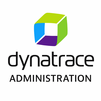
A Saviynt training course offers an in-depth exploration of Saviynt's Identity Governance and Administration (IGA) solutions, focusing on securing applications and managing identity risks in cloud and hybrid environments. Participants will learn how to configure, manage, and deploy Saviynt's security controls effectively. The course covers areas such as Access Management, Data Access Governance, and Risk Analysis, providing hands-on experience through practical exercises to ensure proficiency in Saviynt’s platform.
Saviynt Interview Questions Answers - For Intermediate
1. Explain the concept of 'Identity Analytics' in Saviynt.
Identity Analytics in Saviynt leverages advanced analytics and intelligence to provide insights into identity and access data. It analyzes patterns, risks, and behaviors to detect potential security threats and streamline compliance processes, facilitating informed decision-making and proactive risk management.
2. How does Saviynt support automated provisioning and de-provisioning?
Saviynt supports automated provisioning and de-provisioning by integrating with various IT systems and applications. It uses policy-based rules and workflows to automatically grant, update, or revoke access rights based on user roles, activities, or status changes, enhancing operational efficiency and security.
3. What is the role of Saviynt in cloud access security brokerage (CASB)?
While Saviynt itself is not a CASB solution, it complements CASB functionalities by providing identity governance and privileged access management for cloud environments. Saviynt ensures that access to cloud services is secure, compliant, and governed by organizational policies.
4. Can Saviynt handle dynamic access control? How?
Yes, Saviynt can handle dynamic access control by continuously analyzing user activities, roles, and risk factors to adjust access rights in real-time. This adaptive approach ensures that access permissions remain aligned with current needs and security policies.
5. How does Saviynt manage access requests and approvals?
Saviynt manages access requests and approvals through a centralized request portal where users can request access to resources. Requests are routed to appropriate approvers based on workflows and policies, with the system providing visibility and tracking of the approval process.
6. Describe the importance of Saviynt's continuous compliance monitoring.
Continuous compliance monitoring in Saviynt is crucial for ensuring that organizations remain in compliance with internal policies and external regulations at all times. It automatically detects and alerts on violations, reducing the risk of non-compliance and enhancing security posture.
7. How does Saviynt support cross-domain identity management?
Saviynt supports cross-domain identity management by integrating with various identity providers and directories, enabling centralized management of identities across different domains and platforms. This facilitates seamless access control and identity governance across the enterprise ecosystem.
8. What are the benefits of Saviynt’s self-service access portal?
Saviynt’s self-service access portal empowers users with the ability to request access to resources, manage their profiles, and perform password resets independently. This enhances user satisfaction, reduces IT workload, and streamlines access management processes.
9. How does Saviynt facilitate secure collaboration with external partners?
Saviynt facilitates secure collaboration with external partners by providing granular access controls, identity federation, and monitoring of partner activities. This ensures that external users can securely access necessary resources without compromising the organization's security.
10. What mechanisms does Saviynt use to detect and prevent insider threats?
Saviynt uses advanced analytics, behavior monitoring, and risk-scoring mechanisms to detect and prevent insider threats. By analyzing user activities and access patterns, Saviynt can identify anomalous behavior and take appropriate actions to mitigate risks.
11. Explain how Saviynt's role-based access control (RBAC) works.
Saviynt's RBAC works by defining roles based on job functions and assigning access permissions to these roles. Users are then granted roles that match their responsibilities, ensuring they have access only to the resources necessary for their tasks, streamlining access management, and improving security.
12. How does Saviynt address the challenges of managing access in multi-cloud environments?
Saviynt addresses the challenges of managing access in multi-cloud environments by providing a unified platform for identity governance and access management across various cloud providers. It ensures consistent policy enforcement, visibility, and control over access rights, regardless of the cloud environment.
13. What is the significance of Saviynt's integration with DevOps tools?
The integration of Saviynt with DevOps tools is significant for automating and securing the DevOps pipeline. It ensures that access to development and production environments is governed by strict policies, facilitating secure code deployment and management practices.
14. How does Saviynt ensure the security of privileged sessions?
Saviynt ensures the security of privileged sessions by monitoring and recording session activities, providing real-time alerts on suspicious behavior, and enforcing session termination policies. This helps prevent unauthorized actions and facilitates forensic analysis.
15. Describe how Saviynt can assist in data access governance.
Saviynt assists in data access governance by classifying data, defining access policies based on data sensitivity, and monitoring data access patterns. It ensures that only authorized users can access sensitive data, thereby protecting against data leaks and breaches.
16. What is Saviynt’s approach to Zero Trust security?
Saviynt’s approach to Zero Trust security involves verifying the identity and context of access requests before granting access, regardless of the user's location. It enforces strict access controls and continuous verification to ensure that trust is never assumed, aligning with the principles of Zero Trust.
17. How does Saviynt contribute to disaster recovery planning?
Saviynt contributes to disaster recovery planning by ensuring that access control and identity governance mechanisms are robust and resilient. It helps maintain essential access management functions during and after a disaster, contributing to business continuity.
18. Can Saviynt provide actionable insights into access patterns and risks?
Yes, Saviynt can provide actionable insights into access patterns and risks through its advanced analytics and reporting capabilities. It enables organizations to identify potential security threats and compliance issues, facilitating proactive risk management.
19. How does Saviynt support secure access to IoT devices?
Saviynt supports secure access to IoT devices by extending identity governance and access management policies to IoT ecosystems. It ensures that devices are securely managed and accessed, reducing the risk of security vulnerabilities in IoT deployments.
20. What future enhancements can be expected from Saviynt?
Future enhancements from Saviynt can include greater use of AI and machine learning for predictive security, enhanced integration with emerging technologies, and further advancements in managing identities and access in increasingly complex IT environments.
Saviynt Interview Questions Answers - For Advanced
1. Explain the concept of role-based access control (RBAC) in Saviynt and how it enhances security.
Role-based access control (RBAC) is a method of regulating access to resources based on the roles of individual users within an organization. In Saviynt, RBAC is implemented to streamline the assignment of permissions and ensure that users have the necessary access to perform their job functions without exposing sensitive data or systems to unauthorized users. This is achieved by defining roles that correspond to specific job responsibilities and assigning those roles to users. Each role has a predefined set of permissions, which simplifies access management and reduces the risk of privilege escalation. Additionally, RBAC enhances security by enforcing the principle of least privilege, ensuring users have the minimum access necessary, and providing a clear audit trail for access reviews and compliance purposes.
2. Describe the process of identity lifecycle management in Saviynt and its importance in an enterprise environment.
Identity lifecycle management (ILM) in Saviynt involves the complete management of a user's identity from creation to deletion. This process includes provisioning, updating, and de-provisioning of user accounts across various systems and applications. ILM is crucial in an enterprise environment because it ensures that user access rights are consistently aligned with their current roles and responsibilities. The process begins with the onboarding of a new user, where their identity is created, and appropriate access is granted based on their role. Throughout the user's tenure, their access may need to be updated due to role changes, promotions, or transfers. Saviynt automates these updates to maintain accurate access controls. Finally, when a user leaves the organization, their access is promptly de-provisioned to prevent unauthorized access. This comprehensive management reduces security risks, enhances compliance with regulations, and improves operational efficiency.
3. How does Saviynt integrate with other ITSM tools, and what are the benefits of this integration?
Saviynt integrates seamlessly with various IT Service Management (ITSM) tools, such as ServiceNow, Jira, and Remedy, to streamline identity and access management processes. This integration enables automated ticket generation for access requests, approvals, and incident management related to identity governance. The benefits of integrating Saviynt with ITSM tools include improved efficiency in handling access requests and incidents, enhanced visibility into access management workflows, and better coordination between IT and security teams. By automating these processes, organizations can ensure that access controls are consistently enforced, compliance requirements are met, and any issues related to identity and access are promptly addressed. This integration also facilitates detailed reporting and auditing, which are critical for maintaining security and regulatory compliance.
4. What are the key features of Saviynt's risk analytics and how do they help in identifying and mitigating risks?
Saviynt's risk analytics features are designed to identify, assess, and mitigate risks associated with identity and access management. Key features include risk scoring, continuous monitoring, and advanced analytics. Risk scoring assigns a quantitative value to various user actions and access patterns based on their potential impact and likelihood, enabling organizations to prioritize high-risk areas. Continuous monitoring involves real-time tracking of user activities and access changes, allowing for the detection of anomalous behavior and potential security breaches. Advanced analytics leverage machine learning and data analysis techniques to identify patterns and trends that may indicate emerging risks. These features help organizations proactively manage risks by providing actionable insights, enabling timely intervention, and ensuring that access controls are effective in preventing unauthorized access and data breaches.
5. Discuss the importance of segregation of duties (SoD) in Saviynt and how it is implemented.
Segregation of duties (SoD) is a critical control in Saviynt that helps prevent conflicts of interest and reduce the risk of fraud or errors by ensuring that no single individual has control over all aspects of any critical business process. In Saviynt, SoD is implemented through the definition and enforcement of policies that restrict certain combinations of access permissions. These policies are designed based on an analysis of business processes to identify potential risk points where conflicts could arise. For example, a user might be allowed to approve transactions but not to initiate them. Saviynt's SoD engine continuously monitors user access and activity to detect and flag violations of these policies. By enforcing SoD, organizations can ensure that critical tasks require collaboration among multiple individuals, thereby enhancing security and accountability.
6. Explain how Saviynt handles compliance management and reporting for regulatory requirements.
Saviynt provides robust compliance management and reporting features to help organizations meet various regulatory requirements such as GDPR, HIPAA, SOX, and more. Compliance management in Saviynt involves the creation and enforcement of policies that align with regulatory standards. Saviynt automates the process of policy enforcement by continuously monitoring user activities and access rights to ensure they comply with these policies. Additionally, Saviynt offers comprehensive reporting capabilities that provide detailed insights into compliance status, access reviews, and audit trails. These reports can be customized to meet specific regulatory requirements and can be scheduled to run automatically, ensuring that organizations have up-to-date compliance information readily available. By leveraging Saviynt's compliance management features, organizations can reduce the risk of non-compliance, avoid penalties, and demonstrate adherence to regulatory standards.
7. What is the role of AI and machine learning in enhancing Saviynt's identity governance capabilities?
AI and machine learning play a significant role in enhancing Saviynt's identity governance capabilities by providing advanced analytics and automation. These technologies enable Saviynt to analyze large volumes of data to identify patterns and anomalies that may indicate security risks or policy violations. Machine learning algorithms can detect unusual user behavior, such as atypical login times or access to sensitive data outside of normal working hours, which could signify potential security threats. AI-driven analytics help in the continuous assessment of risk by dynamically adjusting risk scores based on observed behavior and contextual factors. Additionally, AI and machine learning can automate routine tasks such as access reviews, provisioning, and de-provisioning, thereby improving efficiency and accuracy. By incorporating AI and machine learning, Saviynt enhances its ability to proactively manage identity and access, reducing the likelihood of security incidents and ensuring compliance with policies.
8. How does Saviynt support cloud security and what measures are taken to secure cloud environments?
Saviynt supports cloud security by providing comprehensive identity governance and administration (IGA) solutions specifically designed for cloud environments. Key measures taken to secure cloud environments include automated access provisioning, continuous monitoring, and policy enforcement. Saviynt integrates with various cloud platforms such as AWS, Azure, and Google Cloud to manage and govern access across these environments. Automated access provisioning ensures that users are granted appropriate access based on their roles and responsibilities, while continuous monitoring tracks user activities and access changes in real time. Policy enforcement mechanisms ensure that access controls are consistently applied and that any deviations from established policies are promptly addressed. Saviynt also provides detailed audit trails and compliance reporting to help organizations meet regulatory requirements. By securing cloud environments, Saviynt helps organizations protect sensitive data, prevent unauthorized access, and maintain a strong security posture.
9. Describe the process of access certification in Saviynt and its significance in maintaining security and compliance.
Access certification in Saviynt is a process that involves the periodic review and validation of user access rights to ensure they are appropriate and comply with organizational policies and regulatory requirements. The process begins with the generation of access review campaigns, where managers or designated reviewers are tasked with evaluating the access permissions of users within their scope. These campaigns can be customized based on various criteria, such as user roles, critical systems, or compliance requirements. Reviewers assess whether the access rights are still necessary for the user's job function and approve, modify, or revoke access as needed. The significance of access certification lies in its ability to identify and remediate excessive or outdated access, thereby reducing the risk of unauthorized access and potential security breaches. Additionally, regular access reviews help organizations demonstrate compliance with regulatory requirements and internal policies, ensuring that access controls are up-to-date and effective.
10. What are the challenges of implementing Saviynt in a large enterprise and how can they be addressed?
Implementing Saviynt in a large enterprise presents several challenges, including integration complexity, data migration, user adoption, and ongoing management. Integration complexity arises from the need to connect Saviynt with various systems and applications used across the enterprise. This can be addressed by leveraging Saviynt's extensive library of connectors and APIs, and by involving experienced integration specialists. Data migration challenges involve transferring existing identity and access data into Saviynt while ensuring data integrity and consistency. Careful planning, data validation, and the use of automated migration tools can help address these challenges. User adoption is another critical challenge, as employees need to adapt to new processes and tools. Comprehensive training programs, clear communication, and ongoing support can facilitate smooth user adoption. Finally, ongoing management requires continuous monitoring, policy updates, and access reviews to maintain security and compliance. Establishing a dedicated team for identity governance and leveraging Saviynt's automation capabilities can help address these ongoing management challenges. By proactively addressing these challenges, organizations can successfully implement Saviynt and achieve their identity governance objectives.
Course Schedule
| Dec, 2025 | Weekdays | Mon-Fri | Enquire Now |
| Weekend | Sat-Sun | Enquire Now | |
| Jan, 2026 | Weekdays | Mon-Fri | Enquire Now |
| Weekend | Sat-Sun | Enquire Now |
Related Courses
Related Articles
Related Interview
- Kronos UKG Workforce Management (Dimensions) Training Interview Questions Answers
- Proofpoint Email Security Interview Questions Answers
- Siemens SPPA 3000 Basic Training Interview Questions Answers
- CompTIA Network+ Interview Questions Answers
- GCP FinOps Cloud Cost Management Training Interview Questions Answers
Related FAQ's
- Instructor-led Live Online Interactive Training
- Project Based Customized Learning
- Fast Track Training Program
- Self-paced learning
- In one-on-one training, you have the flexibility to choose the days, timings, and duration according to your preferences.
- We create a personalized training calendar based on your chosen schedule.
- Complete Live Online Interactive Training of the Course
- After Training Recorded Videos
- Session-wise Learning Material and notes for lifetime
- Practical & Assignments exercises
- Global Course Completion Certificate
- 24x7 after Training Support












 Join our Live Instructor-Led online classes delivered by industry experts
Join our Live Instructor-Led online classes delivered by industry experts